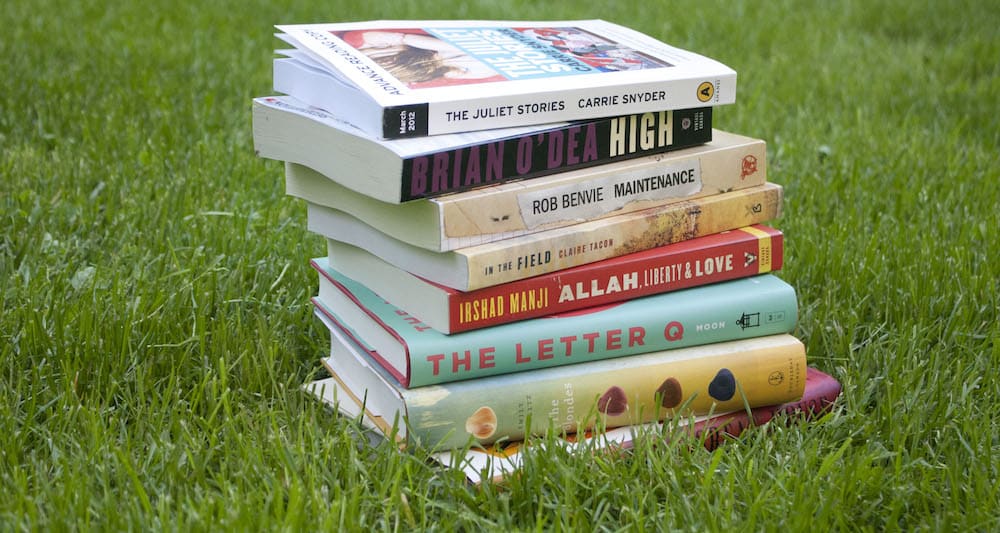As the last bottle of champagne is popped, the remnants of glittery, metallic wrapping-paper are painstakingly extracted from carpet fibres, and emails with syllabi attached trickle into UTORmail inboxes, it becomes clear that the winter break is approaching its end. Winter holidays present the opportunity for students to reunite and catch up with family and friends after a busy first semester.
In my experience, wintertime food-and-drink-filled get-togethers have always inspired a particular stream of conversation, typically initiated with the question, “So, what are you studying now?” This eventually develops into a heated discussion about the usefulness — or, more often than not, the uselessness — of liberal arts degrees.
The repetitive, often hostile debate on the value of studying the arts or humanities is typically two-sided. One side tends to advocate the study of trades, or more pragmatic science degree programs, and condescendingly asks: “Why are you studying English literature, or philosophy? What kind of job are you going to get with that? Starbucks?”
Conversely, those supporting the arts often feel that they are voicing rebuttals from an already-losing side, and attempt to justify their choice of study by saying that the humanities make better people and better societies, or that liberal arts students develop superior verbal and written communication skills.
These may not be the most effective defenses for English majors. A common thread uniting most of the arguments condemning liberal arts degrees is the notion that university arts departments are “soft,” “proudly disconnected from the job market,” and continue to “churn out” graduates who are “a dime a dozen” and lack the real skills that increase “employability” (as The Globe and Mail journalist Margaret Wente dramatically posits in her May 2012 article, “Educated for Unemployment”). Undergraduates pursuing arts and humanities are incessantly being force-fed the idea that they have chosen the wrong field of study, and will enter the job market with general — rather than niche, highly praised, and in-demand — skills.
The reality is that liberal arts students are not only taught how to identify independent clauses, or avoid comma splice errors. Arts undergrads are trained to think critically — to pay attention to the nuances and texture of language — and are continuously enhancing their research skills by sourcing out and strengthening their arguments with the integration of primary and secondary sources. It’s easy to forget that English students have research skills, but mind you, they’re probably going to be branded as irrelevant, “soft” research skills, at best.
A few weeks ago, I had the opportunity to attend a mentorship dinner offered by the “Backpack to Briefcase” (“b2B”) program, hosted by Andrew Gray, a partner at Torys LLP. These dinners, in conjunction with other events offered by the b2B program, provide students with the opportunity to meet, interact, and share anecdotes with classmates, faculty, and alumni of their field of study.
The honoured guests in attendance at this particular dinner were once undergraduates of English literature, who have since attained successful careers in academia, law, journalism, creative writing, and environmental consulting. If there was one critical insight I left with that night, it was that arts degrees produce graduates with extremely malleable skill-sets, applicable to a diverse assortment of careers. It is an overstatement to claim that all students of the arts and humanities are superb writers and orators, yet it’s also an understatement to say that these students are only proficient in communicating.
Liberal arts degrees create flexible job candidates, arguably willing to take risks, as they’ve chosen and continue to pursue a path that everyone seems to warn them against. Margaret Wente may have a point when she writes, “What [journalism] schools don’t provide is jobs in journalism,” but jobs are seldom simply handed out to graduates; graduates still have to put in effort, job hunt, or enrol in graduate programs, regardless of whether they have a degree in history or neuroscience.
Perhaps something more problematic is the way in which the process of obtaining a postsecondary degree is being depicted — as a means to an end, wherein the venerated end is a relatively high-paying, secure, and somewhat permanent career. Teenagers are often pressured to have a detailed career path (with ten different, equally-detailed, back-up plans) ready-to-go for the first semester of Grade 12; a university education is increasingly viewed as one of many steps in working towards a predetermined goal. Arguments that unwaveringly blast arts and humanities programs, and demand that students have it all figured out instantaneously, tend to imply that a genuine interest in and individual satisfaction with one’s program is secondary. The message seems to be: “You can like what you study, but only if it gets you a job. You should apply yourself, enroll in, and ultimately succeed at whatever is more likely to get you a job.” While it is important to find a job and maintain a sense of realism, it is also necessary for arts students to challenge the over-used, unoriginal dictums taunting them.
So why should one choose the arts and humanities, over another more media-approved, “employable” area of study? One reason is that a liberal arts degree provides graduates with general skills applicable to a multitude of disciplines. A second, yet arguably more imperative reason for choosing to pay for, and pursue, any field of study for at least four years is because you are genuinely interested in it, and have conviction in the idea that your studies will benefit you in some way — despite the arguments posited by your holiday companions.


